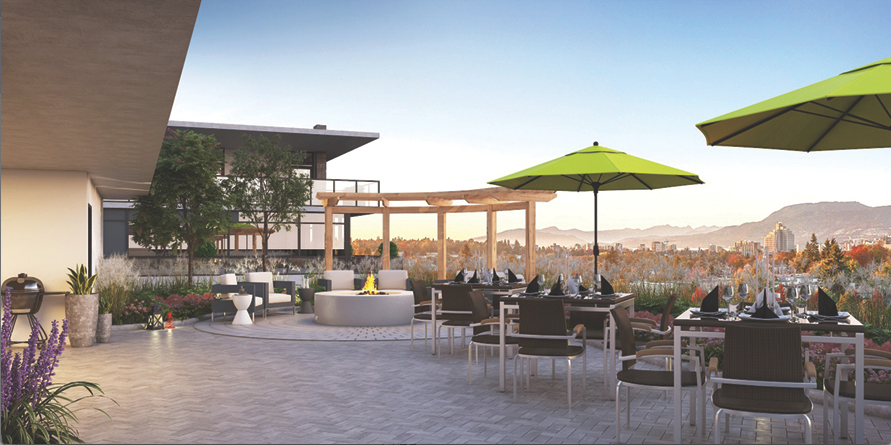Douglas Guest, 38, has purchased two condominiums in a Vancouver retirement residence and he said it makes perfect sense to be buying into seniors’ housing nearly 40 years out.
One is for himself and his wife, eventually. The other is for his 72-year-old widowed mother.
Anticipating his mother’s needs and seeing the long wait-lists for government residences, Guest had started to look for options.
“You could have assisted living, but if you needed extra care for something like dementia, there wasn’t any room for another caregiver; and other places were more like hospitals.”
Then he discovered the Opal retirement residence – currently the only one of its kind in Canada – by B.C.-based Element Lifestyle Retirement.
Located on Vancouver’s west side, Opal requires that only one family member in a suite be 55 or older, thus allowing family members from different generations to live together.
Opal is expected to be completed by February 2019 and will have 44 residential condominium units, 56 rental units and 30 complex- care units.
Guest decided to buy into Opal as an option for himself and his wife when they get closer to retirement. Until then, his mother will live in one of the 1,100-square-foot suites he purchased, and his in-laws will rent the other.
“We take a unique philosophy working with municipalities in terms of their age covenant and bylaws to provide the support and the care that’s not age-restricted in the traditional sense,” said Candy Ho, vice-president, marketing and corporate relations, Element Lifestyle Retirement. “Families can live together or seniors can have direct interaction on a daily basis with much younger people and not be surrounded by suffering and degeneration.”
This solution satisfies those who don’t like the stigma of moving into a “seniors’ home” and are trying to stay at home even when their health deteriorates, said Ho.
“These people stay at home and they wait too long until they need care and then scramble around trying to find the support and care because there’s just not enough of it out there.
“You can try to get care at home, but you’ll only get two hours a week through government services,” said Ho, speaking from the experience she had with her late father-in-law, who had Parkinson’s and Alzheimer’s.
“Then the whole family becomes caregivers,” said Ho, adding that sometimes it’s the children who have special needs. “Anybody can need care at any stage of life.”
As an example, she said, there are parents with autistic children who are looking into her facility.
Mike Chiu, a commercial mortgage broker specializing in seniors’ housing, sees projects like Opal offering solutions for many seniors’ housing challenges.
“Government has not been keeping up with demand for the 75-plus population, so what we’re seeing is more private-sector involvement,” said Chiu, who is a commercial member of the BC Seniors Living Association and BC Care Providers Association. When a senior buys a unit rather than stays at home on a wait-list, they are one less person who is on the list for funded long-term care, he explained.
From a financial standpoint, lots of properties offer rentals, but being able to buy a condo means seniors don’t have to deplete their equity as they would in a high-end rental, said Chiu.
For retirement residence developers, of course, it also dramatically deepens their potential buyer pool.
Connie Jorsvik, independent patient advocate and owner of Patient Pathways, said the concept of intergenerational residences is an idea whose time has come.
“Families often want to be involved in the care of their aging parents. An opportunity for families to stay together and also get the support they need would be a beneficial alternative to the current scenario, ” she said.



